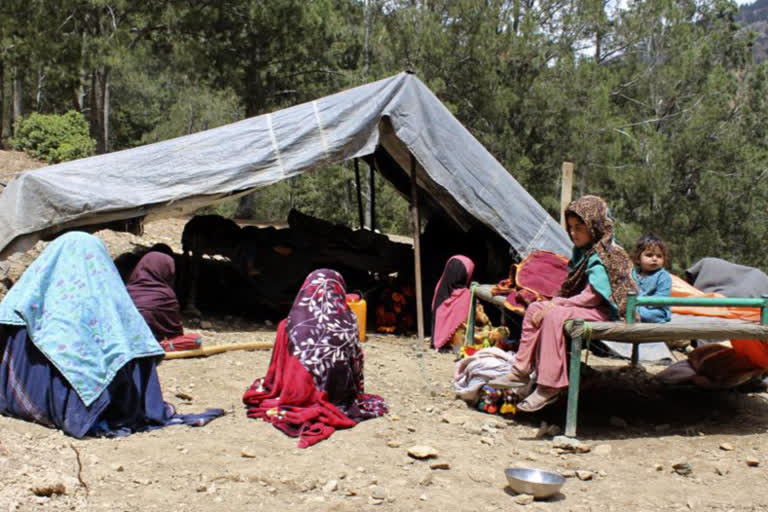Gayan(Afghanistan): Survivors dug by hand Thursday through villages in eastern Afghanistan reduced to rubble by a powerful earthquake that killed at least 1,000 people, as the Taliban and the international community that fled their takeover struggled to aid the disaster's victims. In Paktika province's hard-hit Gayan district, villagers stood atop the mud bricks that once was a home there.
Others carefully walked through dirt alleyways, gripping onto damaged walls with exposed timber beams to make their way. The quake was Afghanistan’s deadliest in two decades, and officials said the toll could rise. An estimated 1,500 others were reported injured, the state-run news agency said.
The disaster inflicted by the 6 magnitude quake heaps more misery on a country where millions face increasing hunger and poverty and the health system has been crumbling since the Taliban retook power nearly 10 months ago amid the U.S. and NATO withdrawal. The takeover led to a cutoff of vital international financing, and most of the world has shunned the Taliban government.
How — and whether the Taliban allow — the world to offer aid remains in question as rescuers without heavy equipment dug through rubble with their bare hands. “We ask from the Islamic Emirate and the whole country to come forward and help us," said a survivor who gave his name as Hakimullah. "We are with nothing and have nothing, not even a tent to live in.”
Also read:6.1-magnitude quake jolts China, 4 dead
The full extent of the destruction among the villages tucked in the mountains was slow in coming to light. The roads, which are rutted and difficult to travel in the best of circumstances, may have been badly damaged, and landslides from recent rains made access even more difficult. While modern buildings withstand magnitude 6 earthquakes elsewhere, Afghanistan's mud-and-brick homes and landslide-prone mountains make such temblors even more dangerous.
Rescuers rushed in by helicopter, but the relief effort could be hindered by the exodus of many international aid agencies from Afghanistan after the Taliban takeover last August. Moreover, most governments are wary of dealing directly with the Taliban.
In a sign of the muddled workings between the Taliban and the rest of the world, the Taliban had not formally requested that the U.N. mobilize international search-and-rescue teams or obtain equipment from neighboring countries to supplement the few dozen ambulances and several helicopters sent in by Afghan authorities, said Ramiz Alakbarov, the U.N. deputy special representative to Afghanistan.
